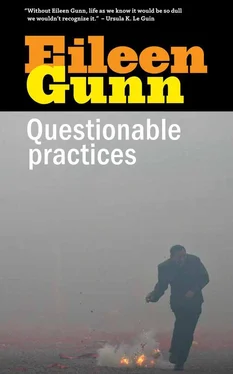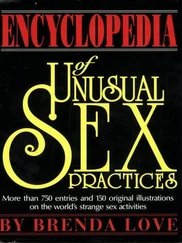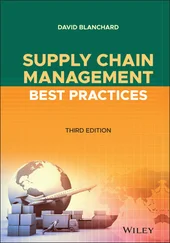Like the pain of childbirth, the pain you feel from cancer does not function as a warning. It comes too late.
Ed was sitting in a wheelchair, in an alien body that wouldn’t do what he wanted. It took so long to die. The doctor looked at him and said, “Goodbye, old friend. We’ve come to the end of the road.” Then the doctor looked beyond him, and continued the conversation with somebody that Ed couldn’t see. “I can prescribe some palliative measures, and I think you should make arrangements with Hospice. My nurse will give you a phone number.”
Ed understood that the doctor wasn’t an old friend, but he didn’t say anything. He was having trouble thinking. He had always been careful about taking painkillers when his leg bothered him, but now the doctors kept telling him he didn’t need to be careful. He didn’t want the drugs: he wanted his head to be clear. He wanted to be able to move, get in and out of bed, pull himself up onto the board and slide across it to the wheelchair. If the drugs were strong enough to deaden the pain, he couldn’t do that.
And if it weren’t for the pain, he wouldn’t know where the world started and the imagination left off. If he hurt, he must be alive. If the priests were right, they were all waiting for him there: his parents, his brother, his uncle, his daughter. If that was true, what was all the pain about? If he really believed in heaven, shouldn’t he just give up and die? How was pain protecting him here?
Like crawling through the jungle, or getting out of bed, dying was work. It wasn’t a matter of giving up. It was a matter of pulling himself forward, inch by inch. He wasn’t alone. He could hear familiar voices, and there was always someone sitting there next to the bed. But they couldn’t help with the actual dying part. Katie was there, but the spirit had gone out of her, and she couldn’t help either.
He heard his sister’s voice nearby, talking to somebody. “He’s still holding on. Tell him that it’s okay to let go. Let him know it’s all right.”
Someone sat down next to him and took his hand. She said quietly, “It’s okay, Dad. You can go now. It’s okay. You can go.”
Part of dying, if you had any time to think about it at all, was letting go — not an easy thing to do, after holding on for so long, after making it through all the mud. At the very center of dying was wanting to let go, and eventually the wanting comes to you, whether you invite it or not. Easy and hard are not a part of wanting.
Right now he didn’t want to let go. He heard footsteps approaching, the sound of sucking mud. Marines. He recognized the boots. They stopped in front of the other soldier.
“He’s dead.”
I could have told them that, Ed thought, if they had had the courtesy to ask. That marine was definitely dead.
Then there was someone standing over him. “This one’s dead, too.” It was Dugan from his patrol, redheaded Irish guy from Rhode Island.
That was the crowning ignominy, after all that work. He pushed himself up on his elbows and said, “The hell I’m dead.” He was sure that he was not dead. “I’m Irish,” he added, by way of explanation. It didn’t seem that he could be both.
“Hey!” said Dugan. “That’s Eddie McMurray under all that mud.” He put a hand on Ed’s shoulder. “We’ll send a corpsman up here, Eddie.” He patted Ed on the shoulder again, and then the two marines, rifles ready, walked quickly back down the trail.
Ed twisted his head to watch them go.
Dugan was glad to see me, he thought. That’s nice.
These stories were not written by someone working alone in a basement, much as it felt that way at the time.
I thank my collaborators on several of the stories, Michael Swanwick and Rudy Rucker. I thank participants in the Sycamore Hill, Rio Hondo, and Turkey City writers’ workshops and the San Francisco workshop that doesn’t have a name. I thank everyone who offered feedback on specific stories, especially Martha Bayless, Ted Chiang, L. Timmel Duchamp, Andy Duncan, Carol Emshwiller, Karen Joy Fowler, Molly Gloss, Leslie What and Gary Glasser, Ursula K. Le Guin, Kelly Link, Karen Meisner, Pat Murphy, Nick Nussbaum, Peter H. Salus, Ann Sandomire, Nisi Shawl, JT Stewart, and Avon Swofford.
I thank all the people who allowed me to use their names. They are not responsible for anything I made up about them. None of it is true.
For instance, all opinions and hamburger preferences attributed to Michael Swanwick and Samuel R. Delany in the story named for them were invented by me. All trading cards described therein were actually offered by Burger King in March 2005, though not necessarily to Messrs. Swanwick and Delany. Mr. Swanwick does not, to my knowledge, own a chartreuse 1959 Thunderbird.
Protagonists in the Steampunk Quartet — Carmen Machado, Ellis McKenzie Creel, Santosh Philip, and David Gardner and his son Ridley — are real people who bravely volunteered and donated a few biographical details. I thank the authors of the original steampunk stories, who are also real people, for their forbearance.
For “Speak, Geek,” Susan Gossman lent not only her name but her spiffy blue suit, and Mary Kay and Jordin Kare proffered their macho cat Dominic.
I thank all the historical people I mentioned, all the famous people, all the notorious people (you know who you are).
Most of all, I thank everyone who helped make this book a book: Gavin J. Grant, Kelly Link, Paul Witcover, and John D. Berry.
It takes a village to raise a book. None of the parts you don’t like is their fault in any way.
If I’ve forgotten anyone, I plead insanity.
— Eileen Gunn
Eileen Gunn is a writer and editor. Her fiction has received the Nebula Award in the United States and the Sense of Gender Award in Japan, and has been nominated for the Hugo, Philip K. Dick, and World Fantasy awards, and short-listed for the James Tiptree, Jr. award. She was the editor/publisher of the edgy and influential Infinite Matrix webzine (2001–2008), and on dark nights can hear it stomping about in the attic. She also edited, with L. Timmel Duchamp, The WisCon Chronicles 2: Provocative essays on feminism, race, revolution, and the future .
Originally from the Boston area, she has lived in Los Angeles, New York, and San Francisco, and now makes her home in Seattle, with her husband, typographer and book designer John D. Berry. She has an extensive background in technology advertising, and was Director of Advertising and Sales Promotion at Microsoft in the mid-1980s; her stories sometimes draw on her understanding of the Byzantine dynamics of the corporate workplace. Gunn retired in 2010 from the board of directors of the Clarion West Writers Workshop after twenty-two years of service, and is presently at work on a novel.












